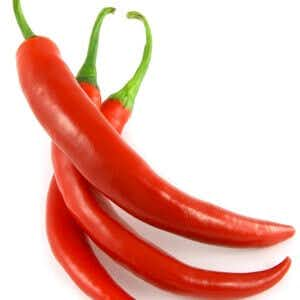
In the winter, when colds and flu viruses are common, one of the most common complaints is a cough that lingers long after the infection has cleared up. Of course, the congestion, sneezing and general misery of a cold are awful. And the fever, headache and muscle pain that accompany a case of the flu are even worse. Usually, these are gone within a week or two. While most people also stop coughing in that time frame, about 10 percent are left with a dreadful cough (Clinical Respiratory Journal, online Oct. 31, 2015). What can be done? Could cayenne pepper help?
Clearing Up a Lingering Cough:
Q. I was very congested with a nasty cold. The cough was so bad that I thought I had bronchitis.
I tried over-the-counter cough medicines, but nothing worked. At the end of the week, my son gave me a cup of hot water with cayenne pepper in it at bedtime.
The next morning when I woke, I was not at all congested. My cough was gone.
How Could Cayenne Pepper Ease a Cough?
A. We were fascinated by your story. Inhaled capsaicin, the hot stuff in cayenne and other hot peppers, triggers the cough reflex.
So how did a cayenne infusion soothe your cough? Scientists found that people who took capsaicin powder orally had reduced cough symptoms (Respiratory Medicine, Jan. 2015). We appreciate you sharing your remedy.
New research suggests that a long-lasting cough may be caused more by misbehaving nerves sending the wrong signals to the cough center than by problems with the airway itself (Clinical Medicine, Supplement Dec. 2016; Journal of Allergy and Clinical Immunology, online June 15, 2016).
TRP Channels and Cough:
In the airways, nerves to sense temperature are supplied with transient receptor potential (TRP) channels (Temperature, Feb. 25, 2015). Capsaicin affects the TRPV1 channel that senses heat. Although it stimulates the cough reflex (Current Pharmaceutical Design, 2016), flooding these channels seems to suppress coughs, probably by desensitizing TRPV1 channels (Respiratory Medicine, Jan. 2015).
Unfortunately, our reader did not give a recipe, and we could not find a dose used in the study. If you want to try this, you’ll need to experiment. You might start at a fairly low dose of 1/8 or 1/4 teaspoon in a cup of hot water to see if that works.
You might also get relief from menthol, either in mint tea, in a lozenge or through smearing Vicks VapoRub on the soles of the feet.

